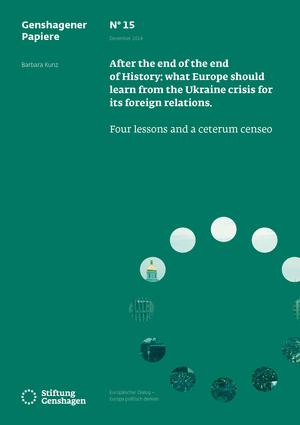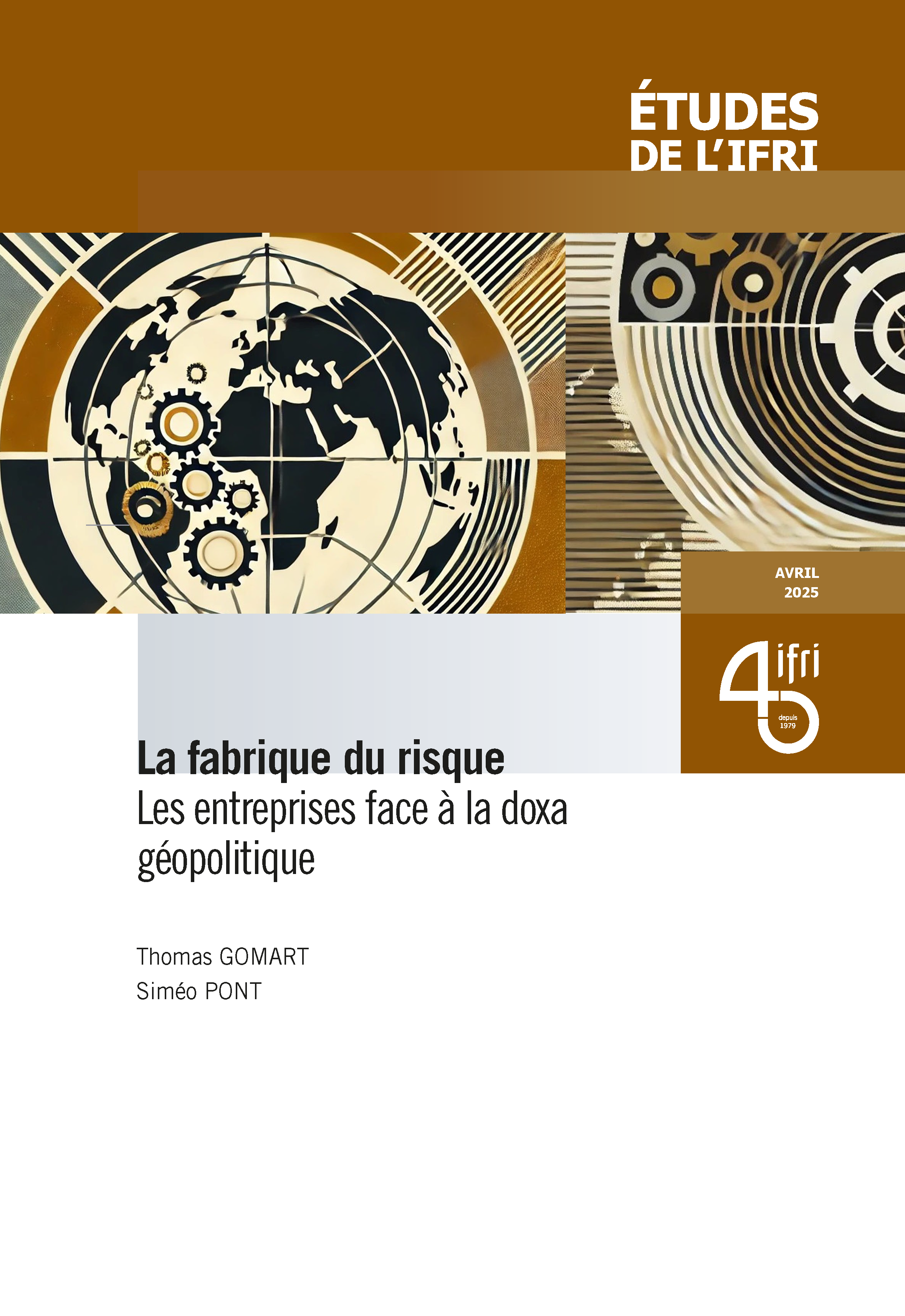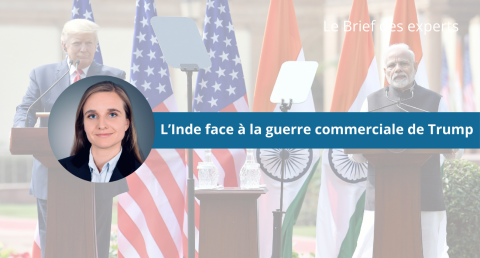After the end of the end of History

This paper intends to take a step back from current developments in Ukraine in order to analyze the lessons Europeans ought to draw from the crisis that caught many by surprise. It identifies four issues Europeans need to address in that respect. Whether the Ukrainian crisis really turns out to be a »game changer« in a structural sense remains to be seen, but it has made clear that Europeans should rethink a number of fundamental assumptions underlying European foreign policy.
In that sense, the Ukrainian crisis may potentially be a trigger for a process of “strategic maturation”, offering an opportunity to make significant steps toward a European culture of strategic foreign policy making that will allow Europe to overcome some of the obstacles standing in its way when it comes to playing a decisive role in international politics.
Published as Genshagener Papiere 15, December 2014.
Téléchargez l'analyse complète
Cette page ne contient qu'un résumé de notre travail. Si vous souhaitez avoir accès à toutes les informations de notre recherche sur le sujet, vous pouvez télécharger la version complète au format PDF.
After the end of the end of History
Centres et programmes liés
Découvrez nos autres centres et programmes de rechercheEn savoir plus
Découvrir toutes nos analyses
Mercosur : Il faut être deux pour danser le tango
« Le Mercosur (…) ne doit pas échouer à cause de la France », déclarait Friedrich Merz début décembre. « La messe n’est pas encore dite », lui répondait Emmanuel Macron quelques jours plus tard. Éclairage sur un dossier susceptible de mettre à mal la relance de la relation franco-allemande.
Perspectives françaises et allemandes face aux défis géopolitiques dans le contexte de l’agression russe contre l’Ukraine
Les politiques étrangères, de défense et de sécurité de la France et l’Allemagne évoluent dans un contexte très tendu, marqué par le retour de conflits à haute intensité. Impensable au lendemain de la chute du Mur de Berlin qui symbolise la fin du conflit Est-Ouest, la guerre est aujourd’hui de retour en Europe, alors que les espaces terrestres et maritimes qui entourent le continent européen, de l’Arctique à l’Afrique en passant par le Moyen-Orient, sont devenus des théâtres de rivalité géopolitique, de guerres civiles et de conflits aussi bien hybrides que militaires.
La brigade franco-allemande et la relance de la défense européenne
Une chose est claire depuis le retour de Donald Trump à la Maison-Blanche : le projet d’unification européenne est menacé dans son existence même. À moins d’élaborer une politique de défense souveraine pour parer à la guerre en Ukraine et à l’affaiblissement des garanties de sécurité américaines, l’Union européenne verra se poursuivre l’érosion de sa dynamique de cohésion interne et de son attractivité externe.
Friedrich Merz et la Zeitenwende 2.0. Une « nouvelle ère » pour les relations transatlantiques ?
Le 23 février 2025, près de 60 millions d’électeurs ont été appelés à élire un nouveau Bundestag. Ces élections donneront également naissance à un nouveau gouvernement dans la première économie d’Europe.












